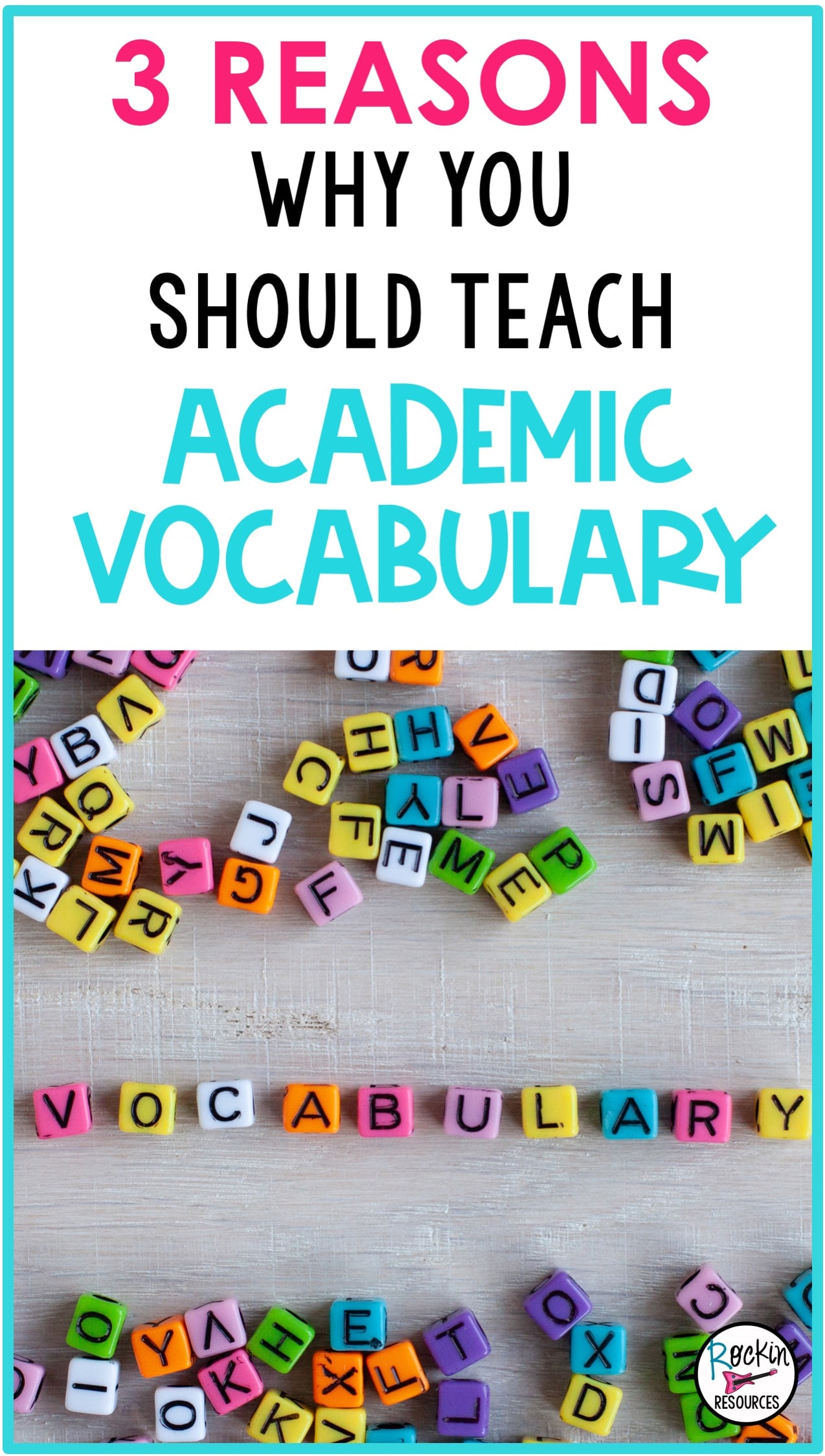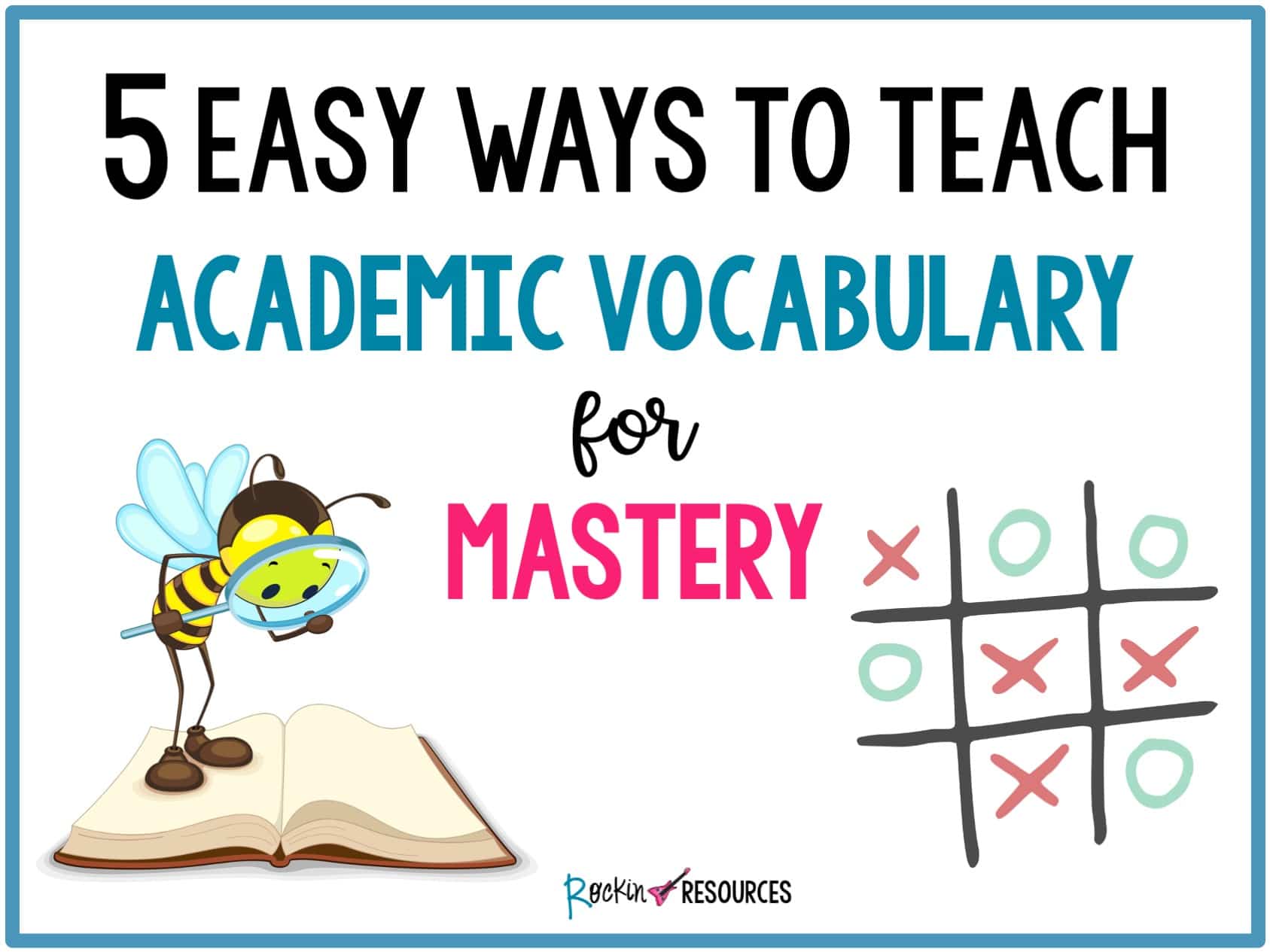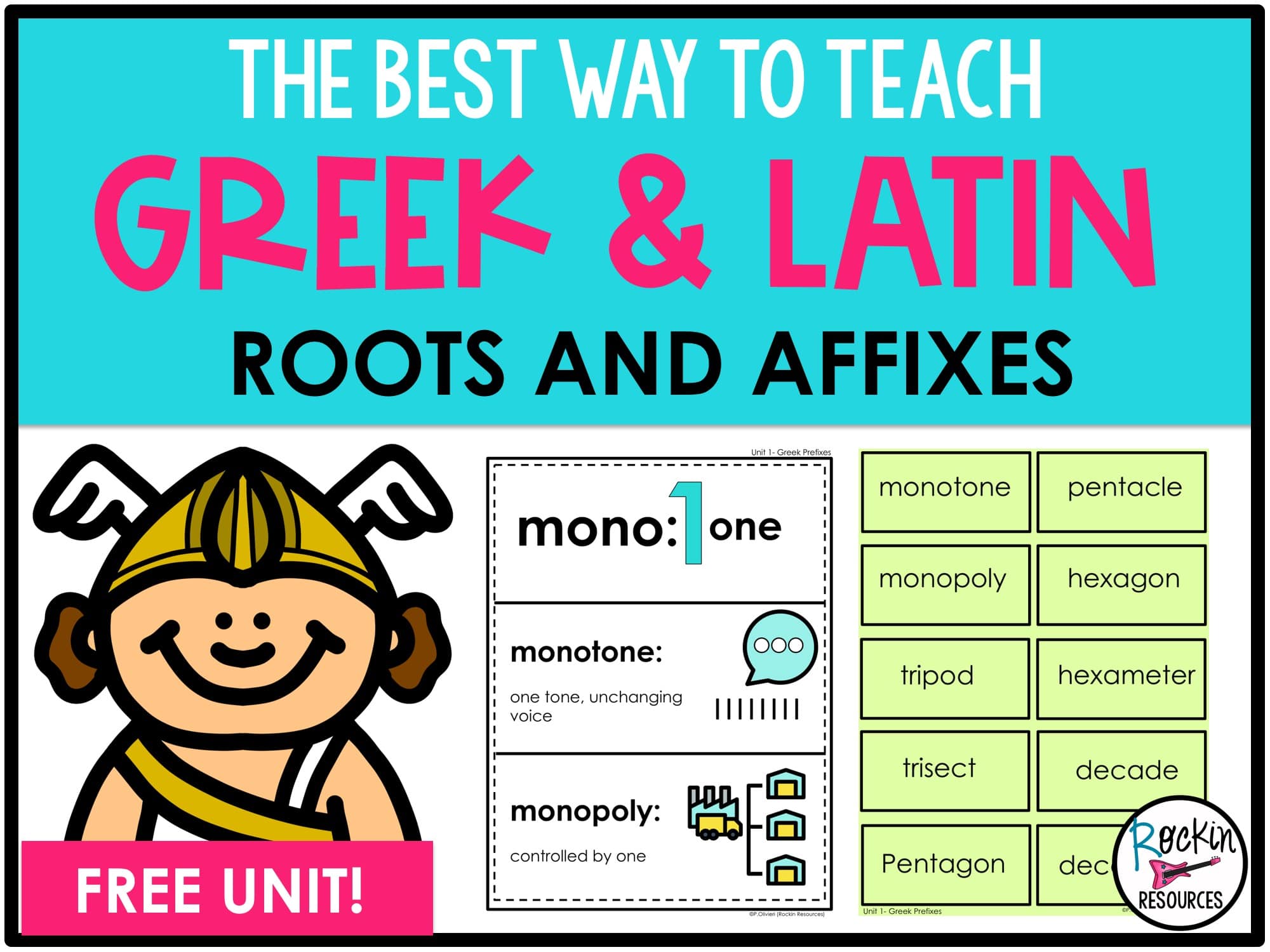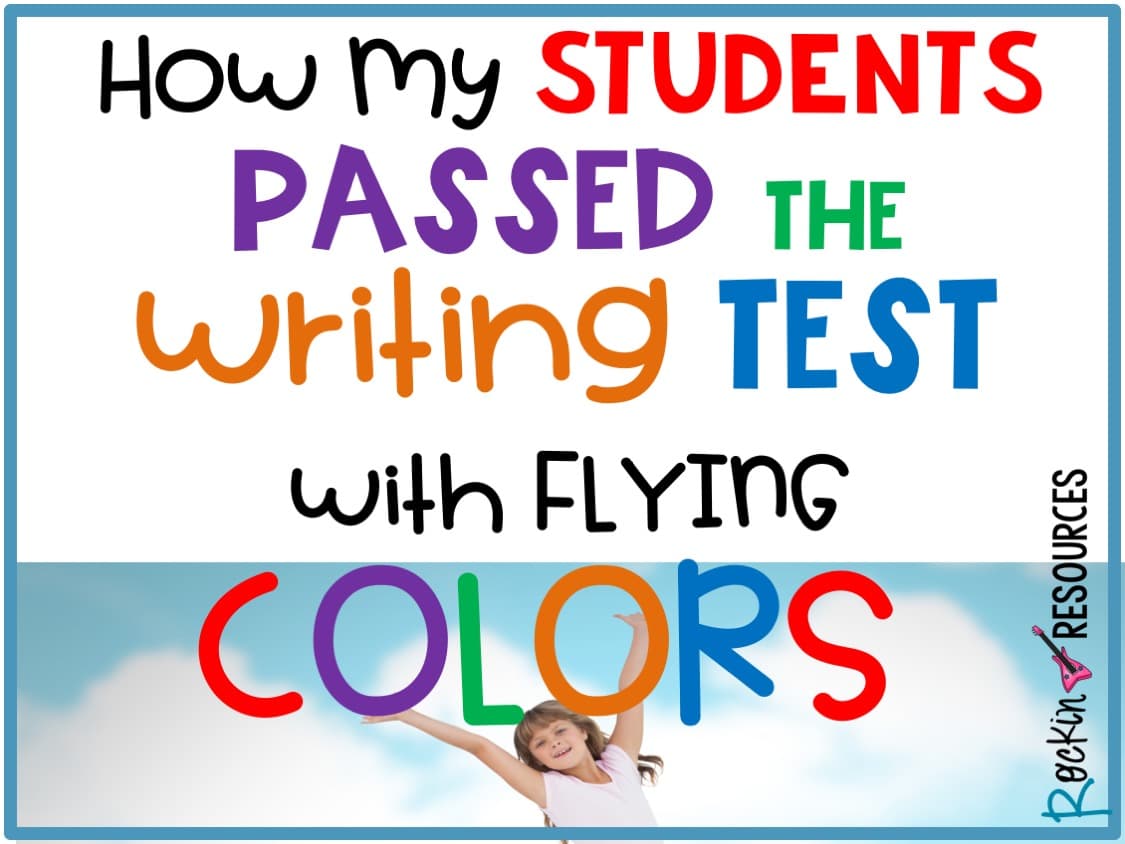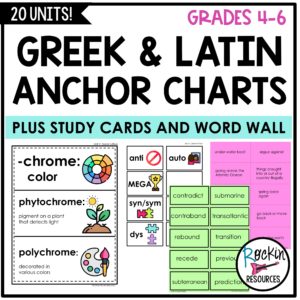Vocabulary instruction is something that many teachers struggle to include in their busy schedules. Best practices require many repetitions and exposures to new words to actually acquire them as part of students’ knowledge. As teachers strive to find time for high-frequency and content-specific words, academic vocabulary may get pushed to the side. This may hurt scores in state testing. Is it necessary to teach academic vocabulary? We think so. Learn 3 REASONS WHY YOU SHOULD TEACH ACADEMIC VOCABULARY!
REASON 1: SHRINK THE GAP
Most classrooms have at least one student who is an English Language Learner, has special education needs, or is from a family of a lower socioeconomic status. You may have all three groups in your classroom. Research has shown that there is a big gap in vocabulary knowledge in each of these groups. It is usually related to several factors, such as lack of exposure to higher-level words due to reading ability or time spent reading, lack of retention or comprehension, or failure to learn specific content and academic vocabulary in a secondary language.
STUDIES SHOW THE NEED FOR TEACHING ACADEMIC VOCABULARY
Multiple studies, such as the one conducted by Biemiller and Boote in 2006, indicate that vocabulary receives an inadequate amount of instructional time to meet the needs of regular education students, but is especially detrimental to students in certain subgroups, including English Language Learners. What did they find to be the most difficult kind of vocabulary to instruct with this population? Academic vocabulary, which is so different from conversational language. As O’Brien and Leighton pointed out in their 2015 study, ELL students in particular struggle with academic language because they’re also simultaneously trying to master conversational language. This can really overtax a student’s ability to absorb information, creating an even greater need for explicit, direct academic vocabulary instruction. Stahl and Fairbanks (1986) found that such academic vocabulary instruction directly improves students’ reading comprehension in the content areas, particularly when utilizing textbooks.
HELP MASTER ACADEMIC VOCABULARY
A great way to help students, particularly English Language Learners, master academic vocabulary is to look at Greek and Latin roots and affixes. For one thing, many languages have their own “roots” in those ancient languages. This will help students make links between cognates in English and in their native languages. While this won’t work in all cases, providing direct and explicit instruction in academic vocabulary will always have a benefit. In Hart and Risley’s 1995 report, The 30 Million Word Gap, research showed that during childhood, lower-income students were exposed to about 13 million words, middle-class families were exposed to about 26 million, and higher-income families were exposed to about 45 millions words. That’s a HUGE gap! While recent years have debunked that exact number, the gap is still high and significant. You can help shrink this deficit with explicit vocabulary instruction, particularly academic vocabulary instruction.
REASON 2: HIGHER EDUCATION PREPAREDNESS
Not every student wants to go to an Ivy League university, but the vast majority of careers require some kind of advanced training after high school. Those that don’t may offer salary advances and promotional opportunities if employees choose to take additional courses. Academic vocabulary is the language of higher education. While some may argue that higher education should work to use more accessible language, we must also realize that good education means helping students overcome barriers that may impede their future success. Academic language is considered to be any highly specialized language that may relate to discussing, comprehending, and dissecting language needed for learning.
EXPOSURE TO ACADEMIC VOCABULARY
Make sure your students won’t face an avoidable stumbling block by helping them to master academic vocabulary. In 2010, the National Governors Association Center for Best Practices & Council of Chief State School Officers stated that students need exposure to and mastery of academic vocabulary in order to learn unfamiliar words that appear across content areas, to understand multiple meanings of words (think of the difference between writing a reflection and seeing your reflection!), and to be able to utilize sophisticated words to communicate effectively.
HOW TO TEACH ACADEMIC VOCABULARY
Teaching academic vocabulary might seem daunting, but there are many ways to teach this skill and make it an effective and seamless part of your curriculum. For example, you can include front-loading academic vocabulary in your picture walks and chapter previews in various content areas. Include academic vocabulary that students will encounter on chapter reviews, quizzes, and concept questions when you introduce the content-specific vocabulary for your science, history, and novel units. In addition, teaching academic vocabulary might even be more important than some specific content area words simply because they will reach across disciplines. For example, your students might not need to utilize the words stele, chariot, or volcanologist in their future careers, but words like analyze, examine, and refute will come in handy!
REASON 3: TESTING SUCCESS
No one likes to ‘teach to the test’, and that’s not what Rockin’ Resources is about, either. Teaching academic vocabulary is not drilling content into students’ head just so they can pass a high-stakes test. However, there’s undeniable proof that familiarity with academic vocabulary can really boost test scores. Test scores can open doors for students who might lack other opportunities to show their skills. For example, some lower-income districts have few opportunities for AP courses, but are required to participate in state testing. Excellent test scores might help students show colleges their academic prowess in an objective way, or such scores may play into candidacy for scholarships or AP courses in the future. Not to mention, many students and their families place a lot of value on test scores. A good test score can boost self-esteem and pride.
WHY DOES INSTRUCTING ACADEMIC VOCABULARY INCREASE TEST SCORES?
Part of it has to do with the idea of being “test-wise”, a phrase mentioned by Millman, Bishop, & Ebel in 1965. Being test-wise is defined as having the “capacity to utilize the characteristics and formats of the tests and/or the test-taking situation to receive a high score.” Since many standardized and high-stakes tests rely on academic vocabulary, helping students learn these terms is linked to their testing success.
A 2016 study by Mitchell et. al. showcased the need for explicit academic vocabulary instruction, particularly with certain under-represented groups. When looking at a sample of about 600 African American middle school students, they consistently scored lower than their peers on standardized testing. Note, this did not indicate their performance in the content areas! These students did well on classroom-based assessments. The root of the discrepancy was in test scores. After teaching academic vocabulary explicitly for a number of weeks, students took another test. There were significant gains in sixth-grade students, moderate gains in seventh-grade students, and small gains with eighth-grade students. (So, start teaching vocabulary sooner rather than later!) Clearly, academic vocabulary helped students perform better. Knowledge of academic vocabulary makes testing more accessible because it helps students communicate their knowledge more successfully.
IT HELPS MORE THAN JUST READING THE TEST
Academic vocabulary isn’t just important when reading the test, it’s important when writing and responding during the test. We’ve all seen the testing trend of moving away from bubbling in responses towards a preference for constructed responses, TDAs, and evidence-based explanations. These provide evidence of higher thinking and proof that students are not only able to decode text or perform calculations, but that they can really interact with text and understand the implicit information presented. Control of academic language and vocabulary allows students to more precisely and thoroughly communicate information. As these written responses and open-ended questions are graded by individuals, not scanners, a student’s ability to communicate at a high level can be taken into better account and will therefore increase student scores.
Why Wait?
Why is there a reluctance to teach academic vocabulary? Does it seem too far above your students? Does it eat into your precious time? Do you think it’s only useful for standardized tests, which many people consider too stressful? All of those considerations are valid, but don’t let that deter you from doing the best for your students. There are ways to seamlessly blend this type of instruction into your daily content while giving your students another tool for success. Here are some tips:
- Include academic vocabulary examples in your use of Greek and Latin roots and affixes instruction.
- Teach academic vocabulary with content-specific terms in history and science.
- Incorporate academic vocabulary into word work with spelling and word study.
- Make sure students identify and discuss examples of academic vocabulary used in novels and read alouds.
- Model breaking down academic vocabulary when you encounter it in texts and when reading aloud classroom-based assessments and instructions.
- Include academic vocabulary in spiral review to make sure students keep the terms fresh in their minds.
- Use academic vocabulary authentically in the classroom.
If you take these steps, you’ll find incorporating academic vocabulary only requires a small amount of effort and can have big rewards!
SEE SIMILAR BLOGS:
DISCOVER RELATED RESOURCES:
-
Greek and Latin Roots – Prefixes, Suffixes Study Units Bundle – 20 UNITS!
Original price was: $59.98.$24.00Current price is: $24.00. -
Greek and Latin Roots- Study Units for Prefixes and Suffixes
Original price was: $29.99.$19.99Current price is: $19.99. -
Greek and Latin Study Units #2
Original price was: $29.99.$19.99Current price is: $19.99.
Share this post on Pinterest:
